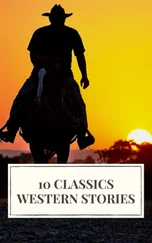Samuel Merwin - The Road Builders
Здесь есть возможность читать онлайн «Samuel Merwin - The Road Builders» — ознакомительный отрывок электронной книги совершенно бесплатно, а после прочтения отрывка купить полную версию. В некоторых случаях можно слушать аудио, скачать через торрент в формате fb2 и присутствует краткое содержание. Жанр: foreign_prose, foreign_adventure, на английском языке. Описание произведения, (предисловие) а так же отзывы посетителей доступны на портале библиотеки ЛибКат.
- Название:The Road Builders
- Автор:
- Жанр:
- Год:неизвестен
- ISBN:нет данных
- Рейтинг книги:4 / 5. Голосов: 1
-
Избранное:Добавить в избранное
- Отзывы:
-
Ваша оценка:
- 80
- 1
- 2
- 3
- 4
- 5
The Road Builders: краткое содержание, описание и аннотация
Предлагаем к чтению аннотацию, описание, краткое содержание или предисловие (зависит от того, что написал сам автор книги «The Road Builders»). Если вы не нашли необходимую информацию о книге — напишите в комментариях, мы постараемся отыскать её.
The Road Builders — читать онлайн ознакомительный отрывок
Ниже представлен текст книги, разбитый по страницам. Система сохранения места последней прочитанной страницы, позволяет с удобством читать онлайн бесплатно книгу «The Road Builders», без необходимости каждый раз заново искать на чём Вы остановились. Поставьте закладку, и сможете в любой момент перейти на страницу, на которой закончили чтение.
Интервал:
Закладка:
Then there was always to be considered the broad outline of the situation as it was generally understood in the railway world. Details apart, it was known that Commodore Durfee and Daniel De Reamer were fighting for that through connection, and that old General Carrington, – czar of the C. & S. C., holder of one and owner of several other seats in the Senate of these United States, chairman of the National Committee of his party, – that General Carrington was sitting on the piazza of his country house in California, smoking good cigars and talking horse and waiting to see whether he should gobble Durfee or De Reamer, or both of them. For the general, too, was represented on the directorate of the Sherman and Western; and it was an open question whether his minority directors would continue to support the De Reamer interests or would be ordered to ally themselves with the Durfee men. Either way, there would be no sentiment wasted. But it seemed to Carhart that so long as De Reamer should be able to hold up his head in the fight General Carrington would probably stand behind him. Commodore Durfee was too big in the East to be encouraged in the West. And yet – there was no telling.
It was very pretty indeed. Carhart was a quiet man, given more to study than to speech; but he liked pretty things.
CHAPTER III
AT MR. CARHART’S CAMP
“It takes an Irishman, a nigger, and a mule to build a railroad,” said Tiffany.
With Young Van, he was standing in front of the headquarters tent, which, together with the office tent for the first division, where Old Van would hold forth, and the living and mess tents for the engineers, was pitched on a knoll at a little distance from the track.
“The mule,” he continued, “will do the work, the nigger will drive the mule, and the Irishman’ll boss ’em both.”
Young Van, keyed up by this sudden plunge into frontier work, was only half listening to the flow of good-natured comment and reminiscence from the chief engineer at his elbow. He was looking at the steam-shrouded locomotive, and at the long line of cars stringing off in perspective behind it. Wagons were backed in against this and the few other trains which had come in during the day; other wagons were crawling about the track almost as far as he could see through the steam and the dust. Men on horseback – picturesque figures in wide-brimmed hats and blue shirts and snug-fitting boots laced to the knee – were riding in and out among the teams. The old track ended in the immediate foreground, and here old Van was at work with his young surveyors, looking up the old stakes and driving new ones to a line set by a solemn youngster with skinny hands and a long nose. Everywhere was noise – a babel of it – and toil and a hearty sort of chaos. One line of wagons – laden with scrapers, “slips” and “wheelers,” tents and camp equipage, the timbers and machinery of a pile-driver, and a thousand and one other things – was little by little extricating itself from the tangle, winding slowly past head-quarters, and on toward the low-lying, blood-red sun. This was the outfit of the second division, and Harry Scribner, riding a wiry black pony, was leading it into corral on “mile two,” preparatory to a start in the early morning.
From the headquarters cook tent, behind the “office,” came savory odors. Farther down the knoll, near the big “boarding house” tents, the giant Flagg and the equally sturdy Charlie could be seen moving about a row of iron kettles which were swinging over an open fire. The chaos about the trains was straightening out, and the men were corralling the wagons, and unharnessing the mules and horses. The sun slipped down behind the low western hills, leaving a luminous memory in the far sky. In groups, and singly, the laborers – Mexicans, Italians, Louisiana French, broken plainsmen from everywhere, and negroes – came straggling by, their faces streaked with dust and sweat, the negroes laughing and singing as they lounged and shuffled along.
Carhart, who had been dividing his attention between the unloading of the trains and the preparations of his division engineers, came riding up the knoll on “Texas,” his compact little roan, a horse he had ridden and boasted about in a quiet way for nearly four years. John Flint, thin and stooping of body, with a scrawny red mustache and high-pitched voice, soon rode in over the grade from the farther side of the right of way, where he was packing up his outfit for the long haul to the La Paz River. The instrument men and their assistants followed, one by one, and fell in line at the tin wash-basin, all exuberant with banter and laughter and high-spirited play. And at last the headquarters cook, a stout negro, came out in front of the mess tent and beat his gong with mighty strokes; and Harry Scribner, who was jogging back to camp from his corral, heard it, dug in his spurs, and came up the long knoll on the gallop.
There was no escaping the joviality of this first evening meal in camp. In the morning the party would break up. Scribner would ride ahead a dozen miles to make a division camp of his own; John Flint would be pushing out there into the sunset for the better part of a week, across the desert, through the gray hills, and down to the yellow La Paz. The youngsters were shy at first; but after Tiffany had winked and said, “It’ll never do to start this dry, boys,” and had produced a bottle from some mysterious corner, they felt easier. Even Carhart, for the time, laid aside the burden which, like Christian, he must carry for many days. A good many stories were told, most of them by Tiffany, who had run the gamut of railroading, north, south, east, and west.
“That was a great time we had up at Pittsburgh,” said he, “when I stole the gondola cars,” – he placed the accent on the do , – “best thing I ever did. That was when I was on the Almighty and Great Windy that used to run from Pittsburg up to the New York State line. I was acting as a sort of traffic superintendent, among other things, – we had to do all sorts of work then; no picking and choosing and no watching the clock for us.” He turned on the long-nosed instrument man. “That was when you were just about a promising candidate for long pants, my friend.”
“We had a new general manager – named MacBayne. He didn’t know anything about railroading, – had been a telegraph operator and Durfee’s nephew, – yes, the same old Commodore, it was, – and, getting boosted up quick, that way, he got into that frame of mind where he wouldn’t ever have contradicted you if you’d said he was the Almighty and Great Windy. First thing he did was to put in a system of bells to call us to his office, – but I didn’t care such a heap. He enjoyed it so. He’d lean back and pull a little handle, and then be too busy to talk when one of us came running in – loved to make us stand around a spell. Hadn’t but one eye, MacBayne hadn’t, and you never could tell for downright certain who he was swearing at.
“The company had bought a little railroad, the P. G. – Pittsburg and Gulf, – for four hundred and fifty thousand. Just about such a line as our Paradise spur, only instead of the directors buying it personal, they’d bought it for the company.
“One day my little bell tinkled, and I got up and went into the old man’s office. He was smoking a cigar and trying to look through a two-foot wall into Herb Williams’s pickle factory. Pretty soon he swung his one good eye around on me and looked at me sharp. ‘Hen,’ he said, ‘we’re in a fix. We haven’t paid but two hundred thousand on the P.G. – and what’s more, that’s all we can pay.’
“‘Well, sir,’ said I, ‘what’s the trouble?’ It’s funny – he’s always called me Hen, and I’ve always called him sir and Mister MacBayne. He ain’t anybody to-day, but if I went back to Pittsburg to-morrow and met him in Morrison’s place, he’d say, ‘Well, Hen, how’re you making it?’ and I’d say, ‘Pretty well, Mister MacBayne.’ – Ain’t it funny? Can’t break away from it.
Читать дальшеИнтервал:
Закладка:
Похожие книги на «The Road Builders»
Представляем Вашему вниманию похожие книги на «The Road Builders» списком для выбора. Мы отобрали схожую по названию и смыслу литературу в надежде предоставить читателям больше вариантов отыскать новые, интересные, ещё непрочитанные произведения.
Обсуждение, отзывы о книге «The Road Builders» и просто собственные мнения читателей. Оставьте ваши комментарии, напишите, что Вы думаете о произведении, его смысле или главных героях. Укажите что конкретно понравилось, а что нет, и почему Вы так считаете.












